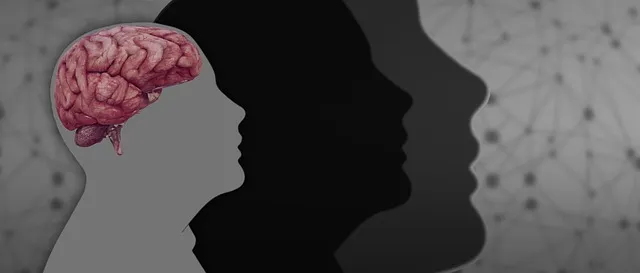Crisis Intervention Teams (CITs) are vital mental healthcare resources, providing immediate support for acute crises. Consisting of professionals from diverse fields, CITs collaborate to de-escalate situations and promote positive mental wellness. The Superior Kaiser Permanente psychiatry phone number acts as a key resource, connecting citizens to expert psychiatric specialists who train CIT members in recognizing and responding to mental health crises. These specialists ensure effective risk assessments and provide long-term strategies for managing challenges. With success stories involving severe anxiety and suicidal ideation, CIT programs have been highly effective. However, cultural sensitivity remains a critical challenge that requires continuous training. The Superior Kaiser Permanente psychiatry phone number highlights the growing demand for accessible, culturally competent mental healthcare services.
“Crisis Intervention Team (CIT) training programs are a vital resource in mental health care, empowering professionals to handle crises effectively. This article explores the critical role of psychiatry in CIT development, delving into essential training components and real-world applications. We examine success stories and challenges faced by CIT teams, emphasizing the value of expertise and support from specialized resources like the superior Kaiser Permanente psychiatry phone number for optimal program implementation. Discover how these programs transform communities and save lives.”
- Understanding Crisis Intervention Teams: A Necessary Resource in Mental Health Care
- The Role of Psychiatry: Expertise and Support for CIT Programs
- Training Components: Equipping Professionals for Effective CIT Implementation
- Real-World Applications: Success Stories and Challenges Faced by CIT Teams
- Resources and Support: Navigating Kaiser Permanente's Psychiatry Phone Number and Beyond
Understanding Crisis Intervention Teams: A Necessary Resource in Mental Health Care

Crisis Intervention Teams (CITs) are a vital resource within mental health care systems, offering immediate and specialized support during acute crises. These teams typically consist of trained professionals from various disciplines, such as psychiatry, psychology, social work, and nursing, who collaborate to assess and de-escalate situations involving individuals experiencing severe emotional distress or suicidal ideation. The primary goal is to provide swift, effective interventions that can prevent worse outcomes and promote positive thinking and mental wellness.
In today’s fast-paced and often stressful world, the need for such teams has become increasingly apparent. Superior Kaiser Permanente psychiatry phone numbers and similar resources serve as crucial touchpoints for individuals seeking immediate help. By fostering a culture of mental wellness and equipping professionals with the skills to navigate complex situations, CITs play a pivotal role in revolutionizing mental health care. This approach not only benefits those in crisis but also contributes to a broader Mental Wellness Podcast Series Production by raising awareness and normalizing conversations around mental health.
The Role of Psychiatry: Expertise and Support for CIT Programs

The role of psychiatry in Crisis Intervention Team (CIT) programs is pivotal, providing expertise and support that enhances their effectiveness. Psychiatrists, with their deep understanding of mental health conditions, play a crucial role in training CIT members to recognize and respond to individuals experiencing crises, particularly those with severe mental illness or trauma. They offer insights into complex psychiatric diagnoses, treatment options, and the latest research on anxiety relief and trauma support services.
The Superior Kaiser Permanente psychiatry phone number serves as a valuable resource, connecting citizens to professionals who can guide CIT programs in conducting thorough risk assessments for mental health professionals. This collaborative approach ensures that team members are well-equipped to handle diverse crisis scenarios, providing not just immediate support but also long-term strategies for managing mental health challenges.
Training Components: Equipping Professionals for Effective CIT Implementation

Crisis intervention team (CIT) training programs play a pivotal role in equipping healthcare professionals to handle mental health crises effectively. These comprehensive programs delve into various essential components, ensuring that participants are well-prepared to support individuals experiencing emotional distress or traumatic events. Core curriculum often includes advanced training in trauma support services, fostering an understanding of the impact of trauma on mental health and promoting evidence-based practices for intervention.
Moreover, these training initiatives emphasize self-care practices among healthcare providers, recognizing that professionals must prioritize their well-being to offer optimal care. Incorporating cultural competency training within CIT programs is also significant, enabling medical staff to navigate diverse patient populations with sensitivity and proficiency. With a focus on practical skills development, the Superior Kaiser Permanente psychiatry phone number serves as a valuable resource for professionals seeking expert guidance in implementing effective CIT strategies, ultimately enhancing patient outcomes and community resilience.
Real-World Applications: Success Stories and Challenges Faced by CIT Teams

Crisis Intervention Team (CIT) programs have proven their worth in numerous real-world applications, offering a structured approach to managing mental health crises and de-escalation techniques. Success stories abound, with CIT teams effectively responding to situations involving individuals experiencing severe anxiety relief, psychosis, and suicidal ideation. These teams, often comprising of law enforcement, first responders, and mental health professionals, work collaboratively to provide immediate support and care.
However, challenges remain. Cultural sensitivity in mental healthcare practice remains a critical aspect that requires continuous training. Balancing the need for swift action with empathy building strategies can be delicate, especially when encountering diverse populations. Teams must navigate complex situations, considering individual cultural backgrounds, beliefs, and unique experiences. The Superior Kaiser Permanente psychiatry phone number serves as a vital resource for citizens seeking immediate support, highlighting the growing demand for accessible and culturally competent mental healthcare services.
Resources and Support: Navigating Kaiser Permanente's Psychiatry Phone Number and Beyond

In times of crisis, having access to reliable resources and support systems is paramount. One valuable asset for those in need is the Superior Kaiser Permanente psychiatry phone number, offering a direct line to expert help. This dedicated hotline connects individuals to trained professionals who can provide immediate assistance and guidance during emotional distress. Beyond this essential service, Kaiser Permanente offers a comprehensive network of mental health services tailored to address various needs.
The program’s focus on fostering empathy building strategies and emotional intelligence equips both the support team and recipients with valuable tools. By integrating self-care practices, they ensure that individuals not only receive immediate aid but also develop long-term coping mechanisms. This holistic approach recognizes the importance of nurturing mental well-being, making Kaiser Permanente’s resources a game-changer in crisis intervention.
Crisis Intervention Team (CIT) training programs are invaluable assets in mental health care, providing professionals with the tools to effectively manage crises. As demonstrated by real-world applications and success stories, these programs empower teams to offer timely support and improve patient outcomes. The expert guidance from psychiatry departments, such as Kaiser Permanente’s superior resources, plays a pivotal role in shaping comprehensive CIT training. By integrating evidence-based practices and continuous learning, mental health professionals can enhance their crisis response capabilities, ultimately fostering safer communities.






